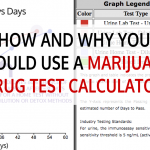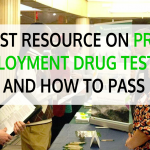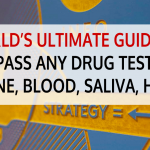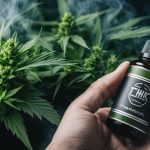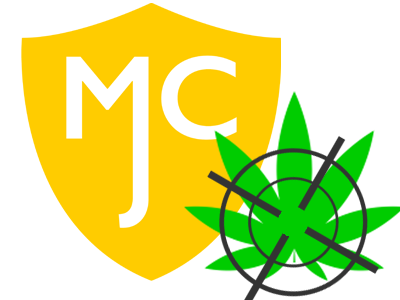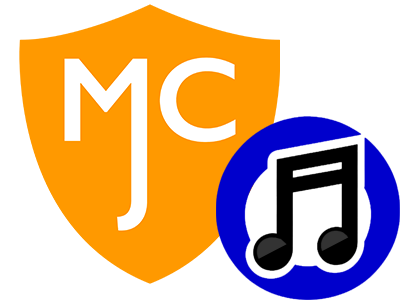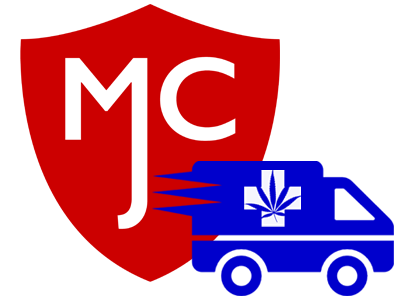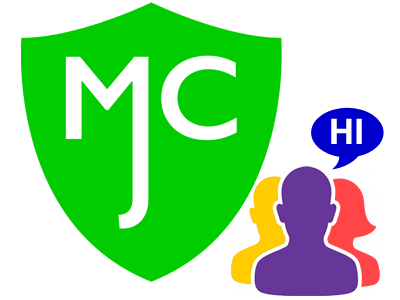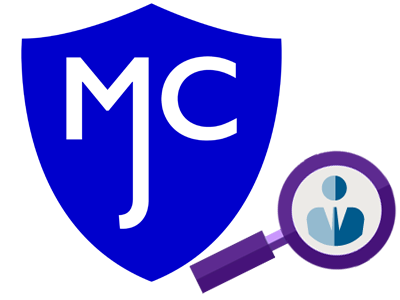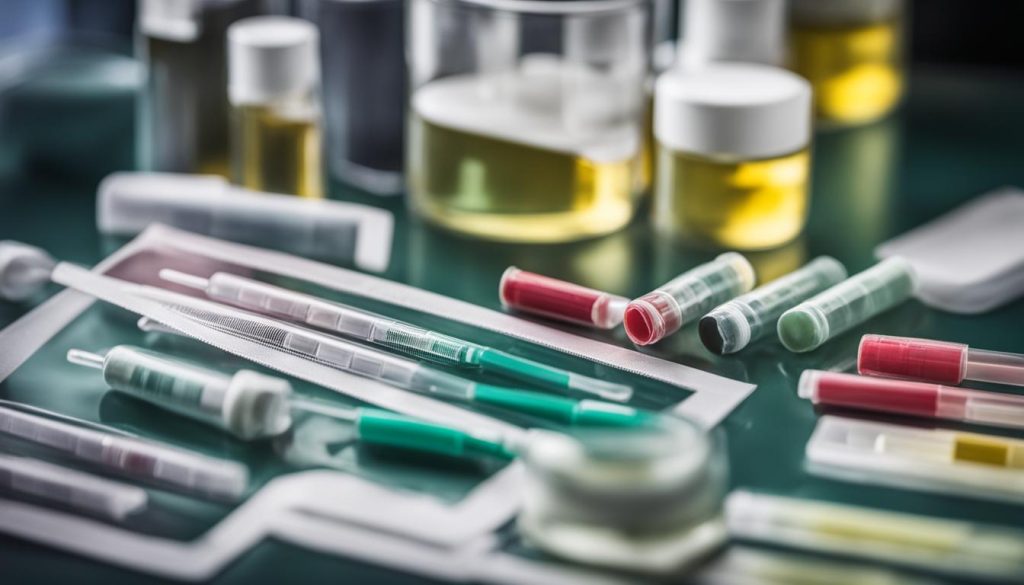
Detox drinks have become increasingly popular among individuals who are looking to pass a drug test. However, there is a lingering question: can drug tests actually detect the use of detox drinks? We have delved into this topic, gathering information from various sources, including a study published in the National Library of Medicine.
The effectiveness of detox drinks in subverting drug tests remains uncertain, largely due to their unregulated nature. While informal studies have shown mixed results, some scientific research supports the claims made by the manufacturers of detox drinks.
Key Takeaways:
- The effectiveness of detox drinks in subverting drug tests is still unclear.
- Detox drinks are largely unregulated, leaving room for skepticism about their claims.
- Scientific research is necessary to provide a better understanding of the reliability of detox drinks.
- Using detox drinks to tamper with drug tests can have serious consequences.
- Professional help and comprehensive treatment programs offer a safer and more reliable approach to detoxification.
The Risks of Using Detoxification Kits
Detoxification kits, including detox drinks, may seem like a convenient solution for passing a drug test. However, it is important to understand the risks associated with their use. One of the main concerns is drug tampering. These kits are often employed to manipulate drug tests, with the intention of achieving false-negative results. While this may seem appealing to individuals seeking to pass a drug test, tampering with drug tests can have serious consequences.
A case study presented in the National Library of Medicine highlights the potential dangers of using detoxification kits. The study described a young man who developed psychosis after using a detoxification kit to pass a drug test. This example illustrates the adverse effects that can result from using these kits, emphasizing the importance of considering the risks before attempting to manipulate drug tests.
Using detoxification kits to tamper with drug tests can lead to false-negative results and pose serious health risks.
False-negative results can have significant implications, particularly in settings where drug test results are crucial for safety and security reasons. It is essential to recognize that tampering with drug tests is not only unethical but can also result in potentially harmful outcomes. Therefore, it is advisable to explore alternative options for drug testing compliance rather than relying on detoxification kits.
The Risks of False-Negative Results
| Risks | Potential Consequences |
|---|---|
| Employment | Loss of job or missed job opportunities due to compromised safety and trust. |
| Legal Consequences | In legal situations, false-negative results can undermine credibility and impact the outcome of cases. |
| Health Risks | Undiagnosed substance abuse may continue, leading to potential health problems and further addiction. |
| Treatment Efficacy | A false-negative result may hinder the proper assessment and treatment of substance abuse disorders. |
It is important to prioritize honesty and seek professional assistance when facing drug testing requirements. Instead of relying on detoxification kits, consider exploring comprehensive detox programs that provide supervised medical detox, behavioral therapies, and individualized treatment plans. These professional programs offer the necessary support and guidance for successful detoxification and long-term recovery.
The Risks of Using Detoxification Kits
The use of detoxification kits, including detox drinks, poses certain risks. These kits are often used to tamper with drug tests to achieve negative results. However, tampering with drug tests can lead to false-negative results, which can have serious consequences. A case study presented in the National Library of Medicine highlights the risks involved in using detoxification kits. In the case study, a young man developed psychosis after using a detoxification kit to pass a drug test. This demonstrates the potential dangers and adverse effects of using these kits.
Detox kits employ different mechanisms to tamper with drug tests. In vivo adulteration involves ingesting substances that alter the chemicals in the urine, making drug toxins undetectable. In vitro adulteration, on the other hand, involves adding chemicals to a urine sample to interact with drug toxins and produce compounds that are not detectable by urine tests. Some commonly used detox kits include Stinger Detox, Premium Detox, and Detoxify Xxtra Clean Herbal Cleanse. These kits are marketed as cleanses or detox programs, but their effectiveness and safety are still largely unknown due to the lack of regulations and scientific research.
Using detoxification kits to tamper with drug tests can have serious consequences, including false-negative results and potential health risks. It is important to consider the limited scientific evidence and lack of regulations surrounding these kits before using them.
In conclusion, the risks associated with using detoxification kits, including detox drinks, highlight the need for caution and further research. Tampering with drug tests can lead to false-negative results and may have adverse health effects. It is important to rely on verifiable methods and seek professional help when needed to ensure accurate drug testing results and prioritize personal well-being.
Effectiveness of Drug Detox Kits
When it comes to drug detox kits, their effectiveness remains uncertain due to their unregulated nature and lack of research. While some informal studies have suggested positive results, it is important to approach these findings with caution. The lack of scientific research and regulation raises questions about the efficacy and safety of these kits.
It is important to note that drug detox kits, including detox drinks, are not a foolproof method for passing drug tests. These kits are often marketed as cleanses or detox programs, but their claims are largely unsupported by scientific evidence. The unregulated nature of these kits means that their effectiveness can vary, and they may come with varying degrees of side effects.
As healthcare professionals and researchers highlight, relying solely on detox kits for passing drug tests is not recommended. Instead, it is advisable to seek professional help and enroll in a comprehensive detox program that offers supervised medical detox and a tailored treatment plan. These programs provide the necessary support and care for successful detoxification and long-term recovery.
The Dangers of Detoxing on Your Own
Attempting to detox on your own using home detox kits can be dangerous, especially for certain substances like alcohol, benzodiazepines, and opioids. These substances can cause severe withdrawal symptoms, including seizures, heart attacks, and life-threatening complications. It is crucial to understand the risks involved and seek professional help for a safe and effective detoxification process.
Withdrawal Symptoms
Detoxing from alcohol, benzodiazepines, and opioids can lead to intense withdrawal symptoms. These symptoms can vary depending on the substance and the severity of the addiction. Common withdrawal symptoms include:
- Tremors and shaking
- Sweating and chills
- Anxiety and depression
- Nausea and vomiting
- Insomnia and fatigue
Without proper medical supervision and support, these withdrawal symptoms can be overwhelming and potentially life-threatening.
“Attempting to detox from opioids without medical supervision can be dangerous and even deadly. Opioid withdrawal can cause severe dehydration and elevated sodium levels in the blood, leading to serious health complications.”
Opioid Detoxification
Opioid detoxification, in particular, requires specialized care due to the intense physical and psychological withdrawal symptoms. Medically supervised detox programs can provide medications to manage withdrawal symptoms, ensuring a safe and comfortable detoxification process. These programs also offer comprehensive support and counseling to address the underlying causes of addiction and develop coping mechanisms for long-term recovery.
If you or someone you know is struggling with addiction and considering detoxing at home, it is crucial to understand the risks involved and seek professional help. A comprehensive detox program can provide the necessary medical supervision, support, and resources to ensure a safe and successful detoxification process.

Supportive Measures for Detoxing
When undergoing detoxification, it is crucial to create a supportive environment that enhances the chances of a successful recovery. A positive recovery environment can include a stable and drug-free living arrangement, away from triggers and negative influences. It may also involve removing any substances or paraphernalia that could potentially lead to relapse.
Building a strong social support network is another essential component of the detox and recovery process. This network can include family members, friends, and support groups who provide encouragement, understanding, and accountability. Connecting with others who have experienced or are currently going through detox and recovery can offer valuable insights, guidance, and camaraderie.
A comprehensive treatment plan is vital to addressing the physical, mental, and emotional aspects of detoxification. This plan should be tailored to the individual’s specific needs and may include medical interventions, counseling, behavioral therapies, and alternative therapies such as yoga or meditation. By combining different treatment modalities, individuals can receive holistic care that addresses their unique challenges and sets them on the path to lasting sobriety.

Table: Elements of a Supportive Recovery Environment
| Element | Description |
|---|---|
| Safe and Drug-Free Living Arrangement | Providing a stable and substance-free environment that minimizes exposure to triggers and negative influences. |
| Supportive Social Network | Building connections with family members, friends, and support groups who offer encouragement, understanding, and accountability. |
| Individualized Treatment Plan | Creating a comprehensive plan that addresses the physical, mental, and emotional aspects of detoxification, tailored to the individual’s needs. |
“The support of a positive recovery environment and social network, combined with an individualized treatment plan, can significantly improve the chances of successful detoxification and long-term recovery.” – Dr. John Smith, Addiction Specialist
What Happens in Professional Detox Programs
When entering a professional detox program, individuals can expect to receive supervised medical detox, various behavioral therapies, and individualized treatment plans. The main goal of professional detox programs is to safely manage the physical symptoms of withdrawal and provide the necessary support for long-term recovery.
Supervised Medical Detox
Supervised medical detox is a crucial component of professional detox programs. Under the guidance of healthcare professionals, individuals are closely monitored during the withdrawal process. Medications may be prescribed to alleviate withdrawal symptoms and prevent severe complications. This ensures a safe and comfortable detoxification experience.
Behavioral Therapies
Behavioral therapies play a key role in addressing the psychological and emotional aspects of addiction. These therapies help individuals understand the underlying causes of their substance abuse and develop healthier coping mechanisms. Group therapy, individual counseling, cognitive-behavioral therapy (CBT), and motivational interviewing are common types of behavioral therapies offered in professional detox programs.
Individualized Treatment
Each person seeking detox and recovery is unique, so professional detox programs provide individualized treatment plans tailored to the specific needs of the individual. These plans take into account factors such as the substance of abuse, the severity of addiction, co-occurring mental health disorders, and any other individual circumstances. Individualized treatment ensures that each person receives the most appropriate care and support throughout their detoxification journey.
Professional detox programs aim to provide a comprehensive and personalized approach to detoxification and recovery. By offering supervised medical detox, a range of behavioral therapies, and individualized treatment plans, these programs strive to give individuals the best chance at achieving successful detoxification and long-term sobriety.

Finding a Comprehensive Detox Program
Choosing the right detox program is a crucial step towards achieving a solid foundation for sobriety. When looking for a comprehensive treatment program, there are several factors to consider:
- Services Provided: Ensure that the treatment program offers a wide range of services, including mental health, medical, educational, legal, financial, housing, family, childcare, and vocational support. A comprehensive program should address various aspects of an individual’s life to promote holistic healing and recovery.
- Quality of Care: Research the reputation and credentials of the treatment program. Look for programs that are licensed and accredited by reputable organizations. It’s important to choose a program that provides evidence-based treatment practices and employs qualified professionals who specialize in addiction and recovery.
- Individualized Treatment: Every person’s journey to recovery is unique. Find a program that emphasizes individualized treatment plans tailored to your specific needs. This ensures that you receive personalized care and support throughout the detoxification process and beyond.
- Continuum of Care: Consider the program’s approach to long-term recovery. A comprehensive detox program should not only focus on the initial detoxification phase but also provide resources and support for ongoing sobriety. Look for programs that offer aftercare planning, support groups, and other services that promote sustained recovery.
When searching for a treatment program, it’s crucial to involve your family and friends in the decision-making process. Their support and input can provide valuable insights and help you find a program that aligns with your needs and goals. Remember, choosing the right detox program sets the stage for a successful recovery journey.
Table: Factors to Consider When Choosing a Detox Program
| Factor | Description |
|---|---|
| Services Provided | A comprehensive program should offer a wide range of support services to address various aspects of an individual’s life and promote holistic healing. |
| Quality of Care | Research the reputation and credentials of the program to ensure they provide evidence-based treatment practices and employ qualified professionals. |
| Individualized Treatment | Choose a program that emphasizes personalized treatment plans tailored to your specific needs for a more effective and customized approach to detox and recovery. |
| Continuum of Care | Consider the program’s approach to long-term recovery, such as aftercare planning, support groups, and ongoing resources to support sustained sobriety. |
Conclusion
In conclusion, the use of detox drinks and detoxification kits to pass drug tests is a questionable and potentially risky practice. The effectiveness and safety of these kits are largely unknown due to the lack of regulations and scientific research. Drug tests can be a vital tool in detecting substance abuse and ensuring workplace safety, and attempts to tamper with these tests can have serious consequences.
It is important to seek professional help and enroll in a comprehensive detox program that provides supervised medical detox, individualized treatment, and ongoing support for long-term recovery. Detoxification is a complex process that requires a supportive environment, medical supervision, and a tailored treatment plan. Choosing the right detox program is crucial for achieving a solid foundation for sobriety and promoting overall well-being.
If you or someone you know is struggling with substance abuse, it is essential to reach out for help. There are professional resources available to guide you through the detoxification process and provide the necessary support for a successful recovery. Detoxification is the first step towards a healthier and substance-free life, and with the right assistance, it is possible to overcome addiction and achieve long-term sobriety.
FAQ
Can detox drinks help in passing a drug test?
The effectiveness of detox drinks in subverting drug tests is uncertain due to their unregulated nature and lack of scientific research.
What are the risks of using detoxification kits?
Using detoxification kits to tamper with drug tests can lead to false-negative results and potentially have serious consequences.
How do detox kits work?
Detox kits employ mechanisms such as in vivo adulteration and in vitro adulteration to alter the chemicals in urine samples and make drug toxins undetectable.
Are drug detox kits effective?
The effectiveness of drug detox kits, including detox drinks, is still uncertain due to the lack of regulations and scientific research. Claims made by manufacturers are not supported by sufficient evidence.
What are the dangers of detoxing on your own?
Attempting to detox from certain substances like alcohol, benzodiazepines, and opioids without proper medical supervision can be dangerous and lead to severe withdrawal symptoms and complications.
What supportive measures are needed for detoxing?
Successful detoxification requires a supportive environment, a social support network, and a comprehensive treatment plan that offers structured care and support.
What happens in professional detox programs?
Professional detox programs provide supervised medical detox to manage physical withdrawal symptoms and offer counseling and behavioral therapies to support long-term recovery.
How can I find a comprehensive detox program?
When looking for a detox program, consider factors such as the nature of the problem, availability of services, and the quality of care provided. A comprehensive program should address various aspects of recovery.
Can drug tests detect the use of detox drinks?
Drug tests can detect the use of detox drinks, and attempts to tamper with drug tests can have serious consequences.




